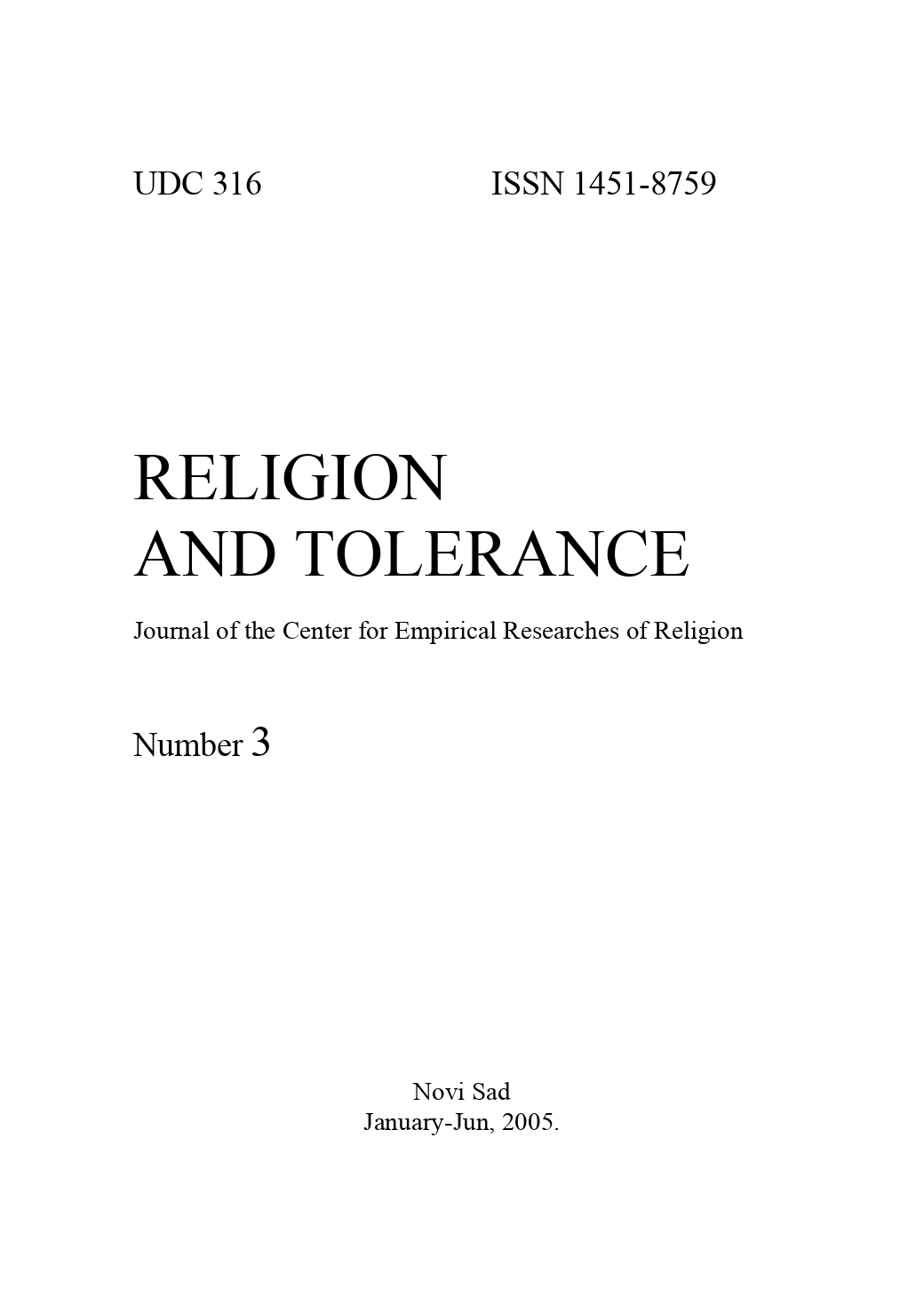ODNOS RELIGIJE I DRUŠTVA U DANAŠNJOJ SRBIJI
CHURCH AND STATE RELATIONS IN PRESENT- DAY SERBIA
Author(s): Angela IlićSubject(s): Law, Constitution, Jurisprudence, Theology and Religion, Sociology of Religion
Published by: Centar za empirijska istraživanja religije (CEIR)
Keywords: legal regulation of church and state relations; religious tolerance; interreligious dialogue; religious pluralism
Summary/Abstract: The political and societal transformation that has taken place in Serbia since 2000 has included redefining the role of religion in society. Specificities of the situation, which have made this process difficult, include an ethnically and religiously diverse population, an entangled relationship between church and state which goes back several centuries, the resulting special position of the Serbian Orthodox Church, as well as the legacy of socialism and atheism. Legal reforms still have not provided solutions to a wide range of outstanding problems in the area of church and state relations. Issues waiting to be resolved include the regulation of the legal position and registration of religious communities and the return of property confiscated from them after World War II. In Serbia human rights are in the process of gaining new meaning in society. This transformation is a long and slow-moving process and expressions of intolerance in the form of violent attacks against (particularly minority) religious communities are, unfortunately, still too regular to ignore. An encouraging development is that representatives of various religious communities have been conducting a dialogue in recent years, striving to achieve reconciliation and a higher level of cooperation. This includes conferences and religious services organized and conducted by representatives of different religious groups. When looking at developments in the area of church-state affairs in recent years, one cannot escape noticing that several positive steps have been taken. These include the bringing of new legislation and attempts at harmonizing national law with international standards; the increased legal guarantee of general human rights protection, and a stronger and wider interreligious dialogue. Negative phenomena include a low level of religious tolerance in society; the postponement of resolving outstanding legal questions; the preferential treatment of the Serbian Orthodox Church by the state, often at the expense of the other religious communities, and the general discrepancies between the written letter of the law and its implementation in everyday life.
Journal: Religija i tolerancija
- Issue Year: 2005
- Issue No: 3
- Page Range: 47-78
- Page Count: 32
- Language: Serbian

